In this newsletter, we go back to core basics of our musculoskeletal health and explore Low Back Pain.
Back pain affects a huge majority of our population. It can affect our ability to work, our mental health and can be extremely distressing.
As Osteopaths, we want everyone to get help as soon as possible and to receive the correct advice on how to recover from and manage Low Back Pain.
Read on for more information……
Kind regards,

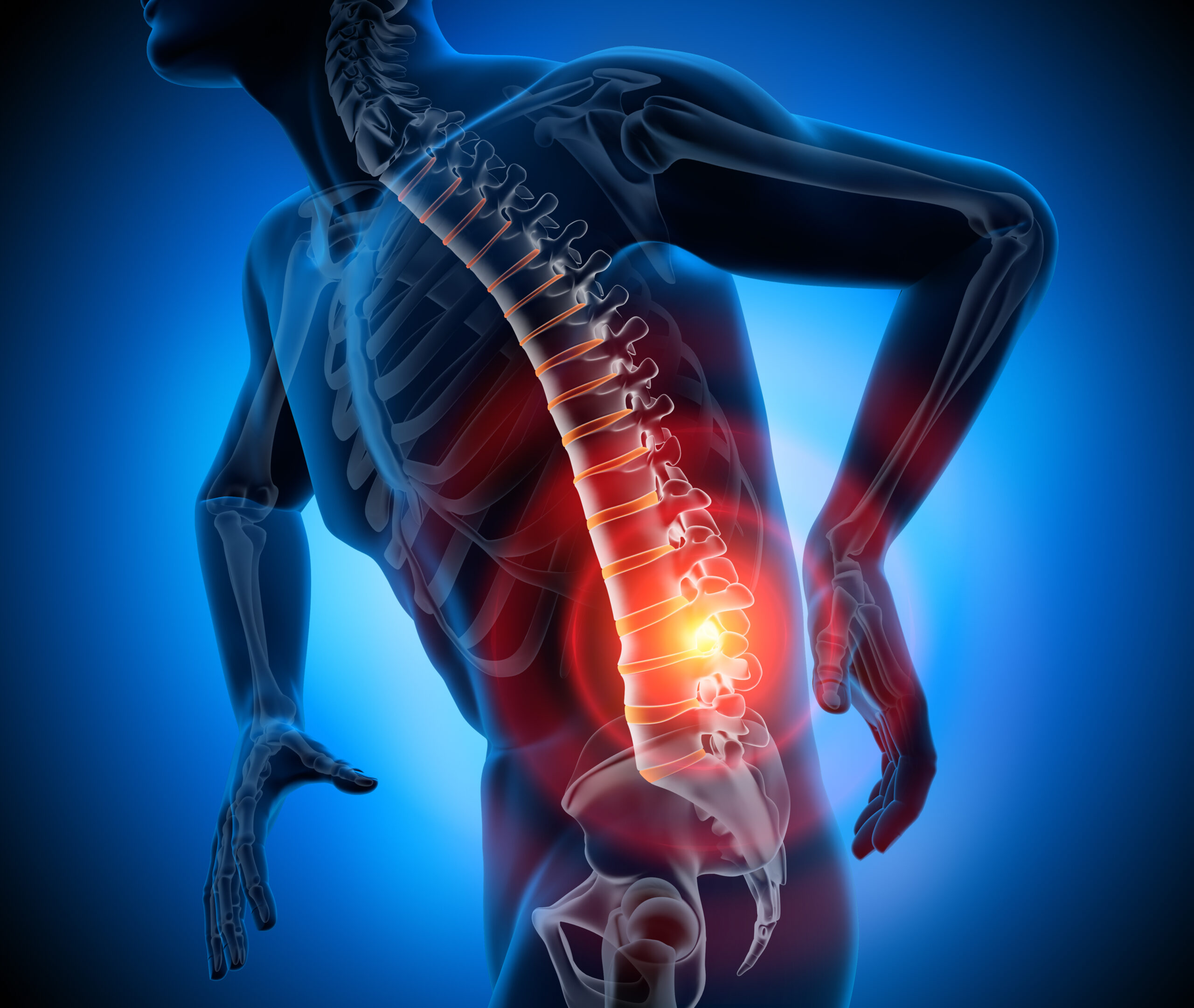
Low Back Pain affects the lower spine called the Lumbar Spine. It may be called Lumbago to indicate non-specific, undiagnosed pain within the lumbar spine.
The cause of Low Back Pain is varied. Anatomy causing pain may be muscular, joint-related, ligamentous or from intervertebral discs.
The pain can be more likely to occur with age and degenerative changes to the spine and/or from arthritis. However, pain can be caused by injury or trauma such as car accidents, lifting items or sports injuries. Symptoms can be acute with a sudden onset or be chronic (pain lasting more than 3 months).
As your Osteopaths, our main job is to initially determine the cause of your pain. This method of differential diagnosis will then enable us to advise you on the correct Do’s and Don’ts for maximum speed of recovery.
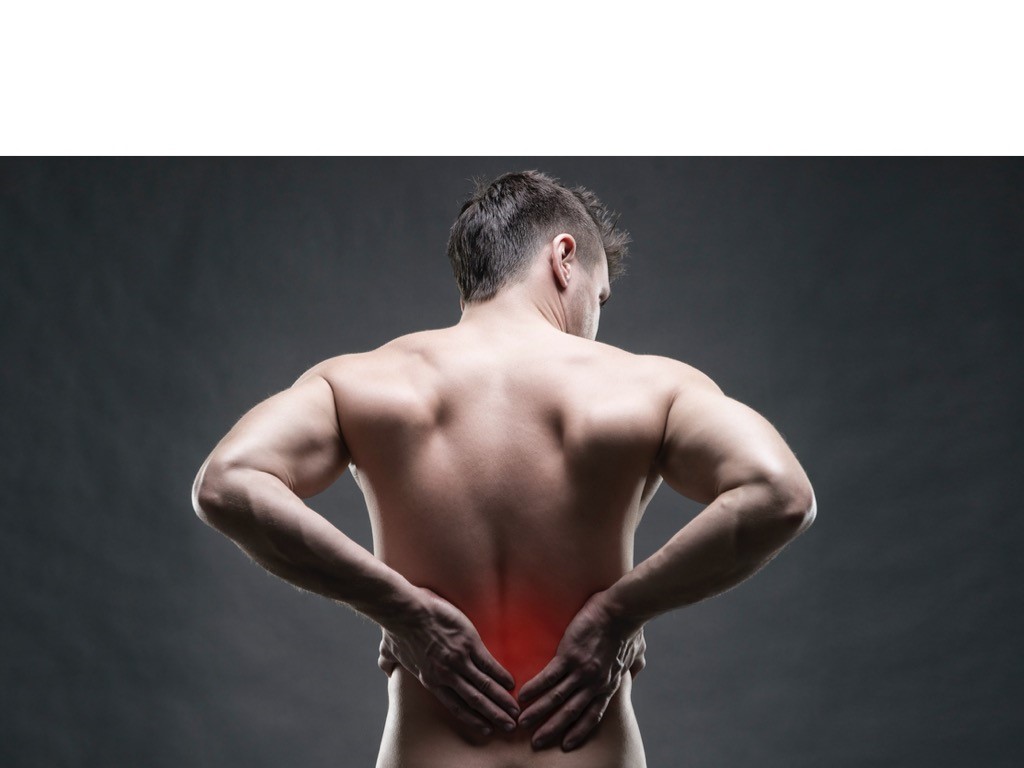
Symptoms are varied! Pain can be sharp or achey, intermittent or constant and can cause pain into the buttocks or legs. Pain can be movement-related or worse when lying or sitting still.
You can now see why diagnosing the cause of the pain is imperative in formulating a treatment and recovery plan 🙂

If you need our help and would like to book an appointment, Please Call: 0208 977 6396
If you have aches and pains, don’t wait, just call the clinic and come in and we will be able to diagnose the problem.
You can email info@osteopathuk.co.uk or call 02089776396
| Click the link for our website: http://www.osteopathuk.co.uk/ |

Please do not hesitate to get in touch with us for any reason, we are here to help and welcome any feedback. Click here for more information.
Kind regards,


Autumn is when we experience the drop in daylight hours and start to feel this effect internally. You may feel more tired and need to go to bed earlier to get a few extra hours of sleep. This is completely normal.
At the clinic we also notice that our patients report an increase in general aches and pains. Chronic aches that may have resolved over the summer months tend to come back in the winter.
So, the question is, what can be done about it? Luckily, we have a lot of advice on this…. 🙂
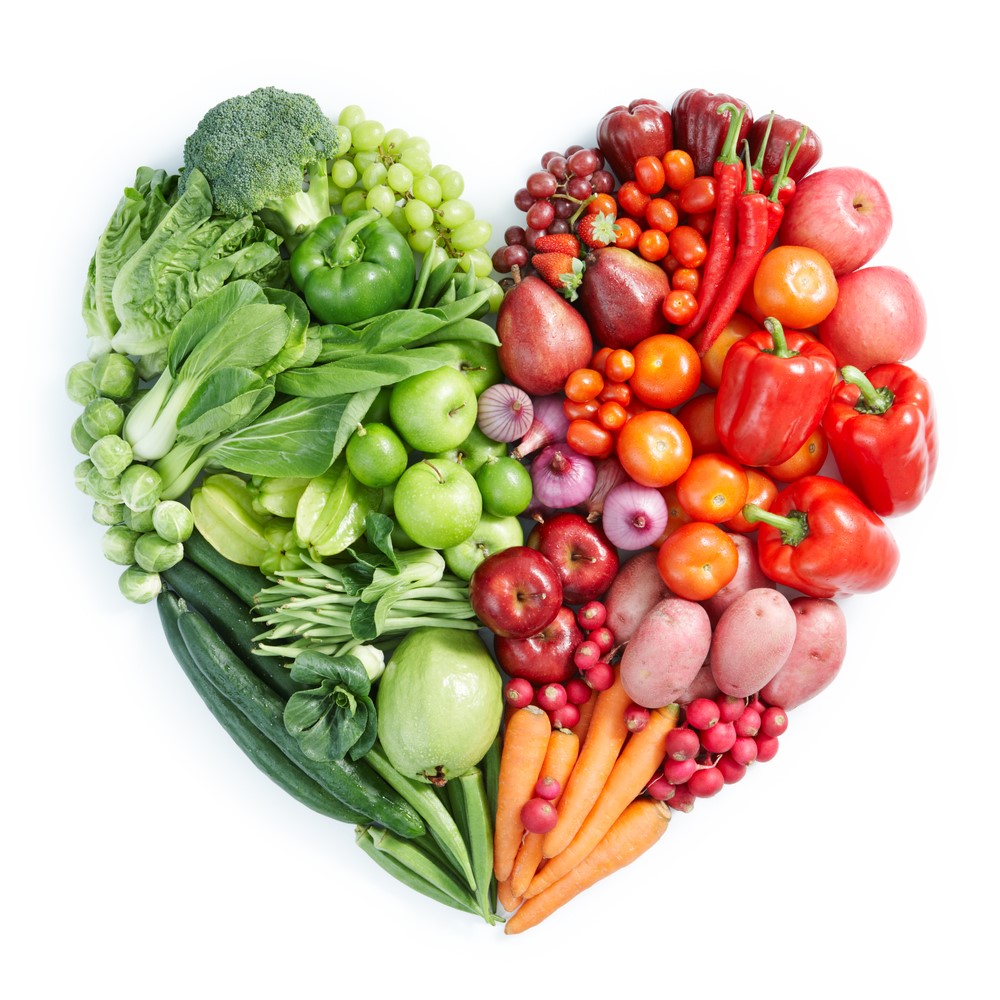
As humans, we synthesise Vitamin D from sunlight and during winter months the UK sunlight isn’t strong enough for us to do this. From now until April, we recommend that you take Vitamin D supplements.
It helps the gut absorb calcium and maintains phosphate levels so that we can keep bones, teeth and gums healthy.
It helps muscles function, reduces inflammation, promotes nervous system function, immune system function and helps with cellular growth and even glucose metabolism.
In other words, it is crucial for your health! So, please go and take some Vitamin D supplements this autumn and winter 🙂
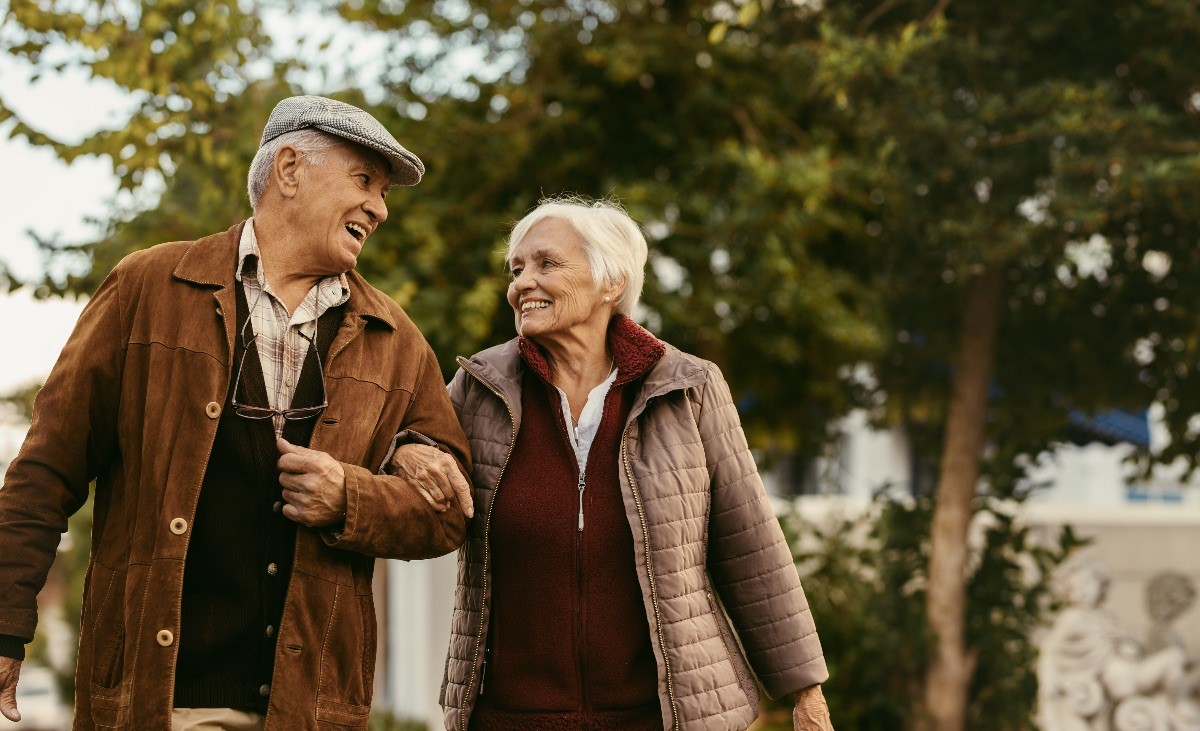
It is so easy to stay indoors during the winter months, especially when it is raining and cold outside.
We recommend adopting different strategies to get yourself through the winter months.
If you need our help and would like to book an appointment, Please Call: 02089776396
If you have aches and pains, don’t wait, just call the clinic and come in and we will be able to diagnose the problem.
You can email info@osteopathuk.co.uk or call 02089776396
| Click the link for our website: http://www.osteopathuk.co.uk/ |

Please do not hesitate to get in touch with us for any reason, we are here to help and welcome any feedback. Click here for more information.
It’s that time of year – kids struggling with the never-ending revision and their parents struggling to keep the household mentally and physically on track during the next 2 months!
As Adults, we accept that long working hours may cause back and neck pains but this can happen to children and teens as well.
The repetitive nature of hours of revision often leads to neck & back pain. The mental stress of exams also causes the body to fatigue via the central nervous system and can cause tension headaches, sleeplessness, poor concentration and lethargy.
However, Osteopathy can bring ease of function within our nervous system and musculoskeletal-skeletal system.
Kind regards,

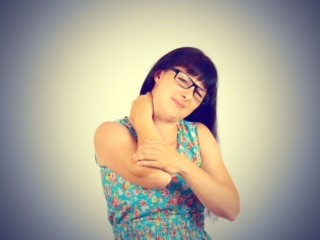
Postural Tension is fatigue of the spinal muscles that hold us upright. Repetitive activity and holding static positions for a long time, such as revising or sitting exams, can cause this to occur.
Classically, Postural Tension manifests itself as a ‘slumping’ posture with shoulders protracted & rounded forwards. The mid back and shoulders are more curved and hunched. The chin extends forwards and there is an increase in the curvature of the lumbar (low back) and cervical (neck) spines.
Symptoms that are typical of Postural Tension are:
Headaches
Sore Neck
Sore Mid Back
Aching Shoulders
Sore Lower Back
Feelings of general tension and achiness.
Additionally, there may be symptoms of tiredness, low mood, anxiety/stress but if you have any concerns with regards to your child’s mental health and well-being, do not hesitate to contact your GP.
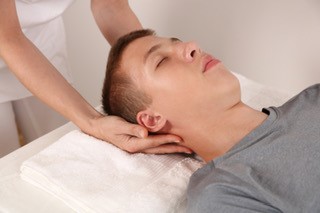
When visiting an Osteopath, the first thing we do is to take a full and detailed Case History. This is vital to provide a diagnosis of Postural Tension as a key element of Exam and Revision Stress.
As your Osteopaths, we always ask anyone doing exams where they are doing the revising. Most of us would assume at a desk but all too often we get told that it is lying on the floor, sitting on the bed or sitting on the floor leaning against a wall.
Once we have the Case History, we then examine physical movements and palpate for any areas of muscle hypertonicity and tension.
For Postural Tension, hands on Osteopathy can prove really beneficial. By easing muscle tension, improving joint mobility and function and helping breathing patterns become less stressed, the body can regain its correct posture and function more efficiently and easily.
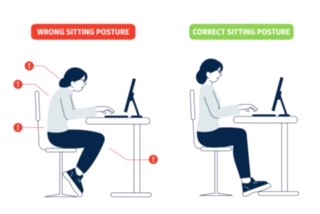
First and foremost is to get your child a fully functioning work area. No more revising whilst sitting on a bed or sofa!
Get a good chair and one that preferably has wheels so that they can move their body weight more freely. Postural Tension occurs due to lack of movement and holding static postures for a long time.
Ensure the chair has a solid back with good lumbar spine support. If possible, get a chair with arm rests so that when reading or taking a brief rest it is possible to rest the arms.
Try to avoid Tablet and Lap Top Use…. if you need to use them, get a bluetooth keyboard that can be used independently like a desktop computer.
If you have aches and pains, don’t wait, just call the clinic and come in and we will be able to diagnose the problem
If you would like more information on how Osteopathy can help, please contact us.
You can email info@osteopathuk.co.uk or call 02089776396
| Click the link for our website: http://www.osteopathuk.co.uk/ |

Please do not hesitate to get in touch with us for any reason, we are here to help and welcome any feedback. Click here for more information.
Spring is here… finally!
It is time to get out there, get walking, get running and get fit.
As your Osteopaths, we are treating patients with end of winter postural tension and related aches and pains. With the arrival of Spring, we are encouraging everyone to get moving again.
The secret after a long winter is to take it steady and build your exercise up in increments – this will help you to avoid injury.
Kind regards,

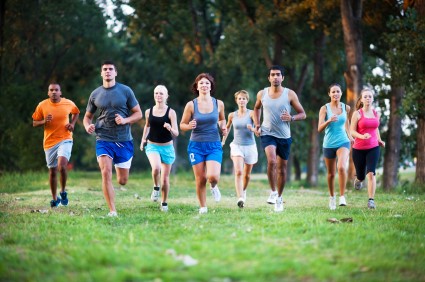
To exercise without injury, it is important to tune into your body and be mindful and aware of how you are feeling.
Start any exercise with a gentle warm up – walking or a slow jog to begin with. Gradually pick up the pace once you feel that warmed up, looser feeling in your body.
A lot of injury can come from repetitive overuse of the same muscles and joints. To avoid this, add in different pace to your exercise and vary it. For example, in the gym move around to different exercise machines to avoid overusing one muscle group. When running, try interval training – run faster for a few minutes and then slow down for a minute to a jog or walk.
If you feel any cramp, pain, soreness or twinge, stop! Never keep on exercising through the pain because you might be doing further damage and this will slow down your healing process.
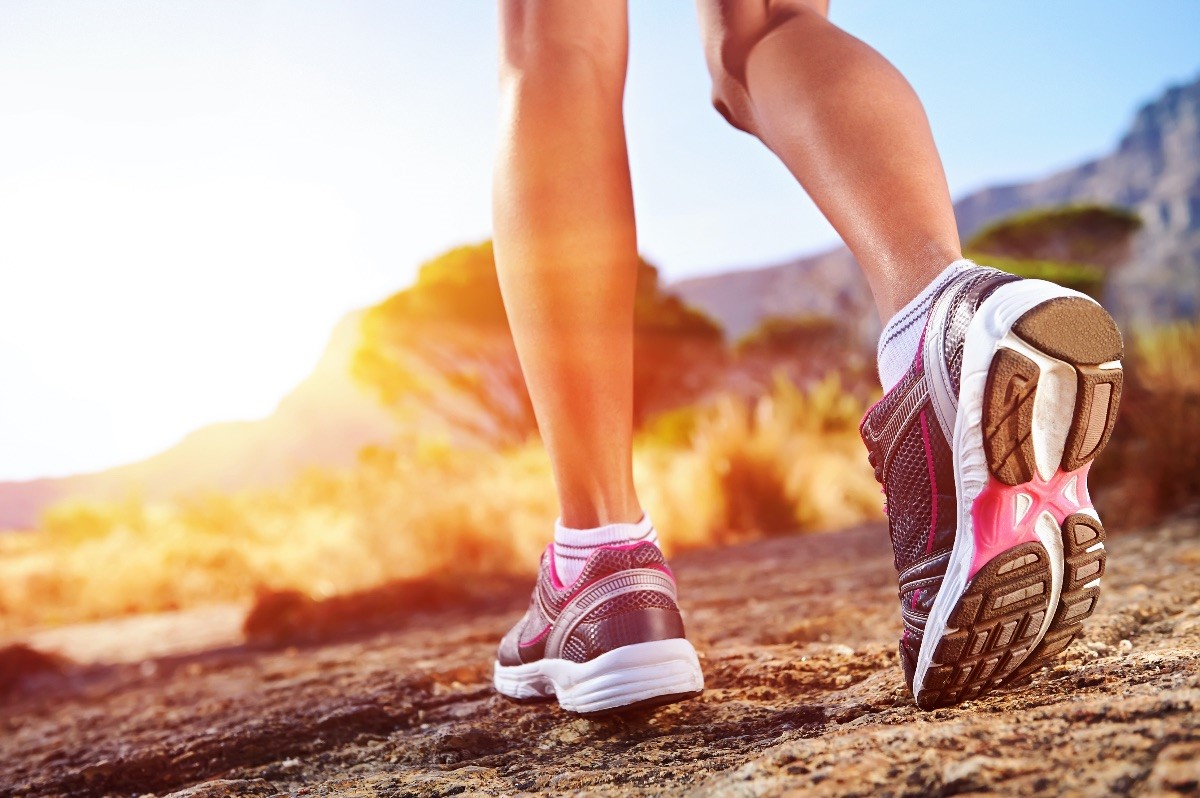
With 5 weeks to go, you will be well on your way with your training regime.
The increase in mileage at this point means that we often see patients at this stage of marathon training. Osteopaths can help keep your joints and muscles in good functioning order to cope with this increase in impact.
To avoid injury, be flexible with your training schedule and listen to your body. Don’t push yourself too hard on the longer runs – you should feel tired but not wiped out.
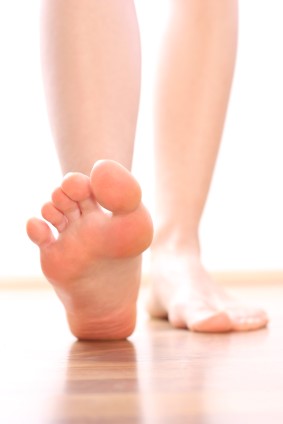
If you are training, walking or running, good footwear is key.
How old are your trainers or walking boots? Think of the amount of use they have had and replace them. They may look in good condition but injury often occurs with older footwear.
Don’t wait, just call the clinic and come in and we will be able to diagnose the problem
If you would like more information on how Osteopathy can help, please contact us.
You can email info@osteopathuk.co.uk or call 02089776396
| Click the link for our website: http://www.osteopathuk.co.uk/ |

Please do not hesitate to get in touch with us for any reason, we are here to help and welcome any feedback. Click here for more information.
Many years ago, when Osteopathy as a medicine was being determined by its founder, Andrew Still, it was all about the body finding its own way to health and well being.
Osteopaths are the facilitators for your body to do just that.
Kind regards,


Osteopaths work on multiple systems within the body to help promote health and well being.
By working on vascular (blood), neurological (nerve) and musculoskeletal systems, Osteopaths stimulate healing processes and facilitate an easier pathway for the body to self-heal.
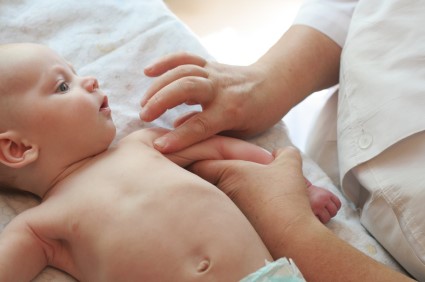
Differential Diagnosis
First and foremost, your Osteopath will take a case history where they find out about your current symptoms and your medical/health back ground. This detailed history taking is vital for differential diagnosis of your problem.
Full Examination of Movement
After the case history, your Osteopath will then assess active and passive movements to help further diagnose your problem in more detail. This protocol ensures that it is only after point of diagnosis that a formulated treatment plan, tailored to you as an individual, can be carried out.
Hands on Treatment
Hands on treatment is a vital part of Osteopathy. Osteopaths are trained to have really good palpation and this sensitivity of touch will also help them pinpoint the areas that are causing you problems. Osteopathic training is focussed on using touch to help stimulate the body to self-heal.
Advice on Self-Care
Your Osteopath will also put a focus on how you can help yourself to heal. The advice may touch on rehabilitation exercises, medication, what movements to do/not do and also how to cope with the pain or stress of your problem.

Osteopathy as a medicine, is accessible for the whole family. At Kingston & Teddington Osteopathy, our focus is on being able to treat every generation.
We specialise in treating:
Babies & Children
Pregnancy – pre and post natal musculoskeletal aches and pains
Sports Injuries
Trauma Injury – eg whiplash, accidents, falls etc
Post Operative Care – eg post knee and hip operations, post shoulder/elbow/wrist injections for arthritis
Degenerative Musculoskeletal Pains – eg wear and tear with age, arthritis
Postural Tension – musculoskeletal aches and pains eg tension headache, neck pain, back pain
If you have aches or pains, don’t wait, just call the clinic and come in and we will be able to diagnose the problem.
Our Osteopaths are happy to help so please call 02089776396
If you would like more information on how Osteopathy can help, please contact us.
You can email info@osteopathuk.co.uk or call 02089776396
| Click the link for our website: http://www.osteopathuk.co.uk/ |

Please do not hesitate to get in touch with us for any reason, we are here to help and welcome any feedback. Click here for more information.
It is A Level and GCSE time and increasingly, we see children and teens that experience Postural Tension from revision and sitting for exams.
As adults, we all experience Postural Tension from the repetitive nature of our jobs, computer strain and prolonged sitting.
However, it is easy to forget that our kids can have this too! This is a stressful time for them and Osteopathy can be really helpful in easing the physical pressure of prolonged sitting and stress.
Kind regards,

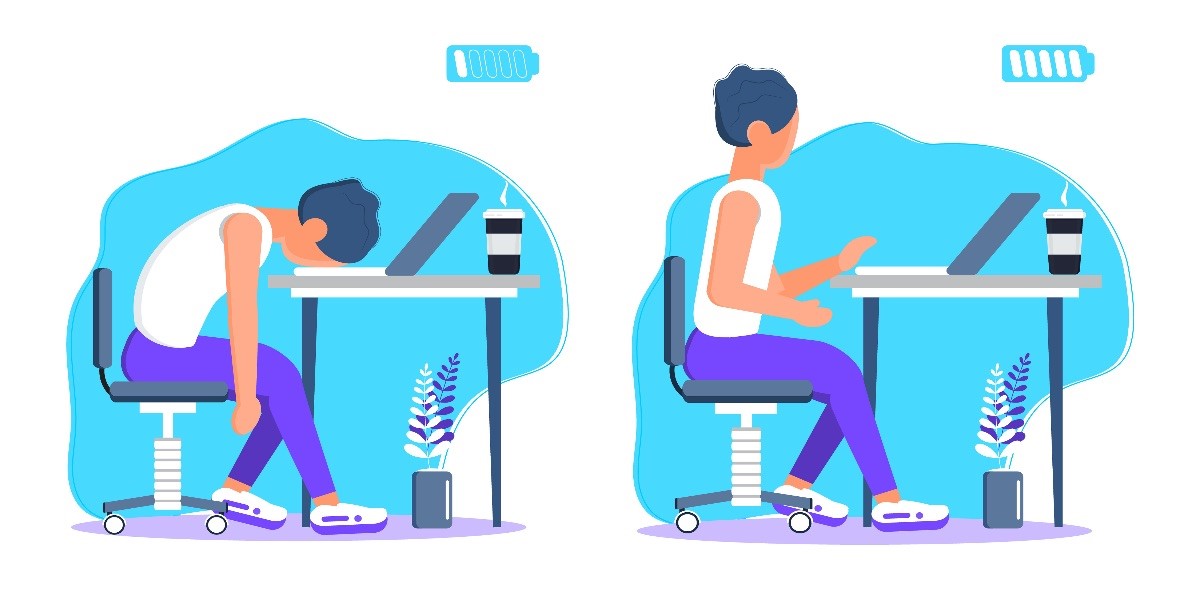
When an Osteopath describes someone as experiencing Postural Tension they don’t mean that the person has bad posture. Instead, the repetitive nature of an activity (for example revising for exams) can lead to the muscles of the spine showing signs of fatigue and this is what Osteopaths term Postural Tension.
Postural Tension manifests itself as a ‘slumping’ posture with exaggerated rounding of the upper back and forward protracted shoulders. The neck then extends and the chin comes forwards in a classic sign of Postural Tension.
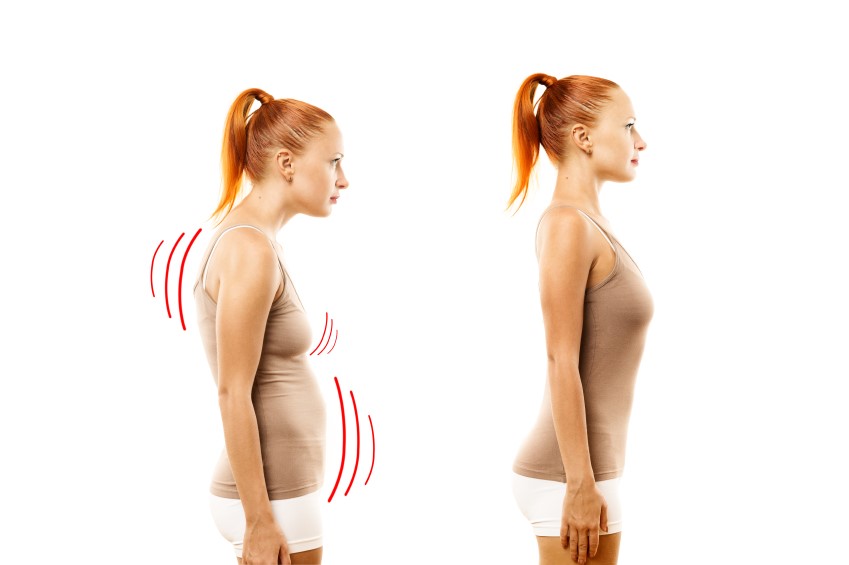
Osteopathy for Postural Tension aims to help the spine curve correctly, the muscles to respond without fatigue to holding us upright and to improve overall function throughout each vertebra of the spine.
Osteopathic massage of the muscles and joint articulation and manipulation are all key to helping the spinal muscles and spine to be restored to proper alignment and function.
For children and teens, some Osteopath techniques may be adapted to take into account the growing spine and muscular changes that occur at this age.

If you would like more information on how Osteopathy can help, please contact us.
You can email info@osteopathuk.co.uk or call 02089776396
| Click the link for our website: http://www.osteopathuk.co.uk/ |

Please do not hesitate to get in touch with us for any reason, we are here to help and welcome any feedback. Click here for more information.
Many of us will experience the pain of a sprained ankle. Instant swelling, pain, bruising and difficulties walking.
It can take weeks to heal and for 20% of cases, there will be chronic ligament damage of the ankle. Weakening of these ligaments means that you are more likely to twist your ankle again, causing further damage.
As your Osteopaths, we can give you advice on how to rehabilitate your damaged ankle and how to help prevent further episodes.
Kind regards,

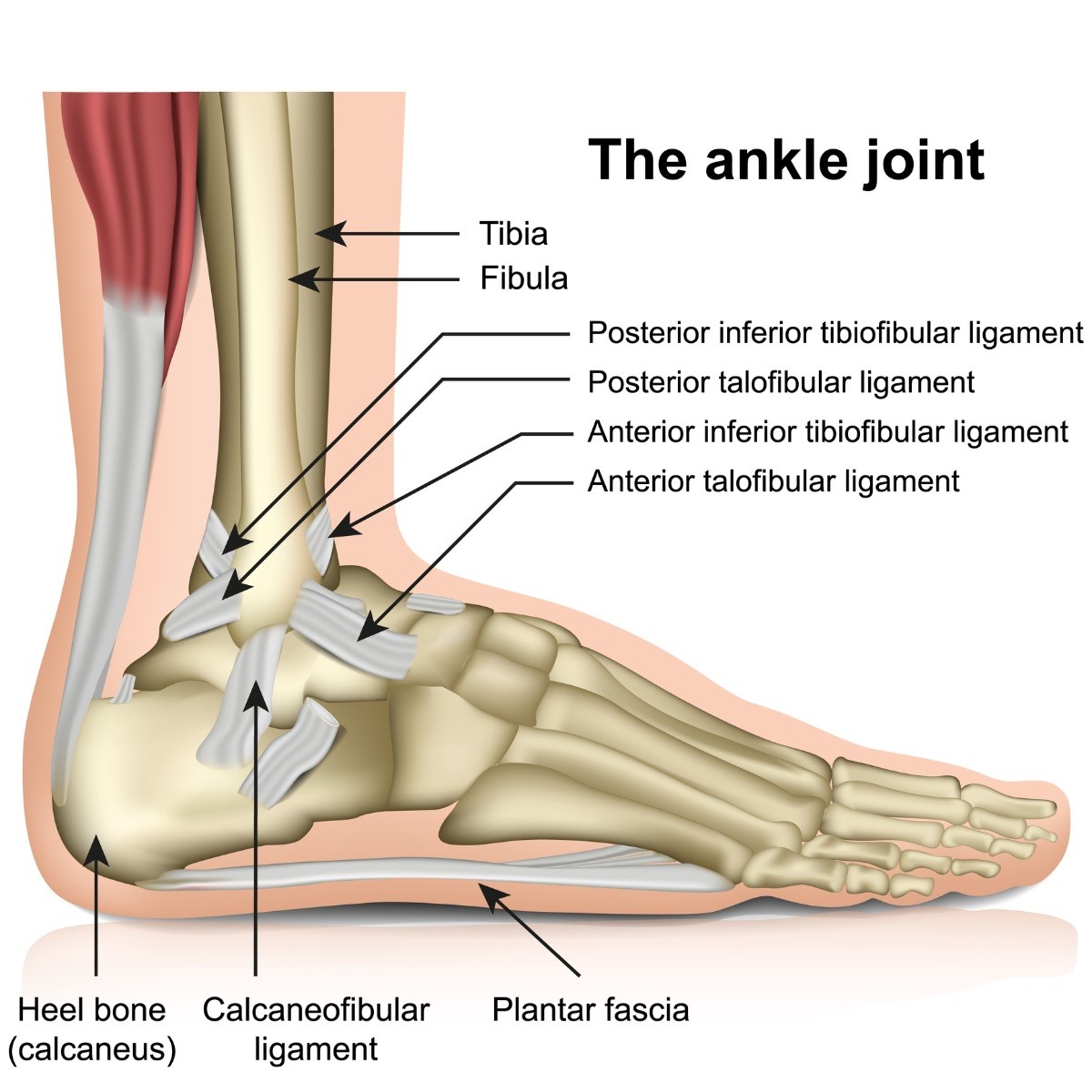
Acute Ankle Sprain
When you first sprain your ankle, it is important to Rest, Ice, and Elevate the foot. Swelling occurs immediately and there will be bruising so it is important to react promptly.
Avoid weight bearing and rest. It is unusual for the ligaments of the ankle to fully tear, but if you feel a ‘pop’ sensation when you twist the ankle, it is likely that there has been significant ligament damage.
Should the pain be severe, there is a possibility that you may have fractured your ankle and it is important that you get an x-ray.
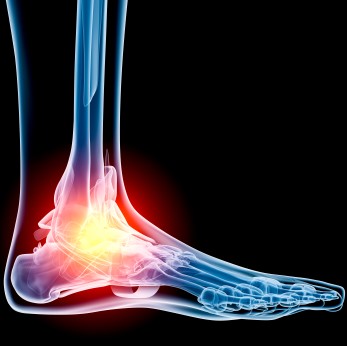
When you sprain your ankle and there is significant ligament damage, it can lead to chronic ankle instability.
This is where you lose the outer stability of the ankle and it is easy to roll your foot inwards. This instability means that you are more likely to re-sprain your ankle.
People with chronic instability of the ankle often complain of ‘twisting’ their ankle when walking on uneven surfaces or playing sports. There can be tenderness on the outside of the ankle and recurring swelling or puffiness to the ankle.
First of all your Osteopath will examine your foot and ankle to determine the damage. You may be asked to try standing on your tip-toes to assess the stability of your ankle. Then, your Osteopath will move your foot and ankle whilst you lie down in order to see the range of movement.
For acute injury, your osteopath will be able to help the alignment of the foot and ankle and also help reduce inflammation with ultrasound therapy. Your foot may need strapping in order to help stabilise it during the initial healing process.
For chronic ankle instability, your Osteopath will determine which ligaments of the ankle have been damaged. They can advise the best exercises to encourage good ankle rehabilitation and also what footwear is best. They will also ascertain whether strapping is needed when engaging in sports to prevent further injury.
Each patient’s injury is different so any exercise plan will be tailored to your specific needs.
If you are suffering from Ankle or Foot Pain, please do not hesitate to get in touch. We would love to help.
You can email info@osteopathuk.co.uk or call 02089776396
Click the link for our website: www.osteopathuk.co.uk

Please do not hesitate to get in touch with us for any reason, we are here to help and welcome any feedback. Click here for more information.
We have all heard of a ‘cricked’ neck which can be acutely painful, but there are other more chronic types of Neck Pain and stiffness.
Osteopathy can be hugely beneficial in helping to ease Neck Pain. Your Osteopath will carefully differentially diagnose the cause of the pain first because it is important to take the right treatment approach when dealing with Neck problems.
Kind regards,

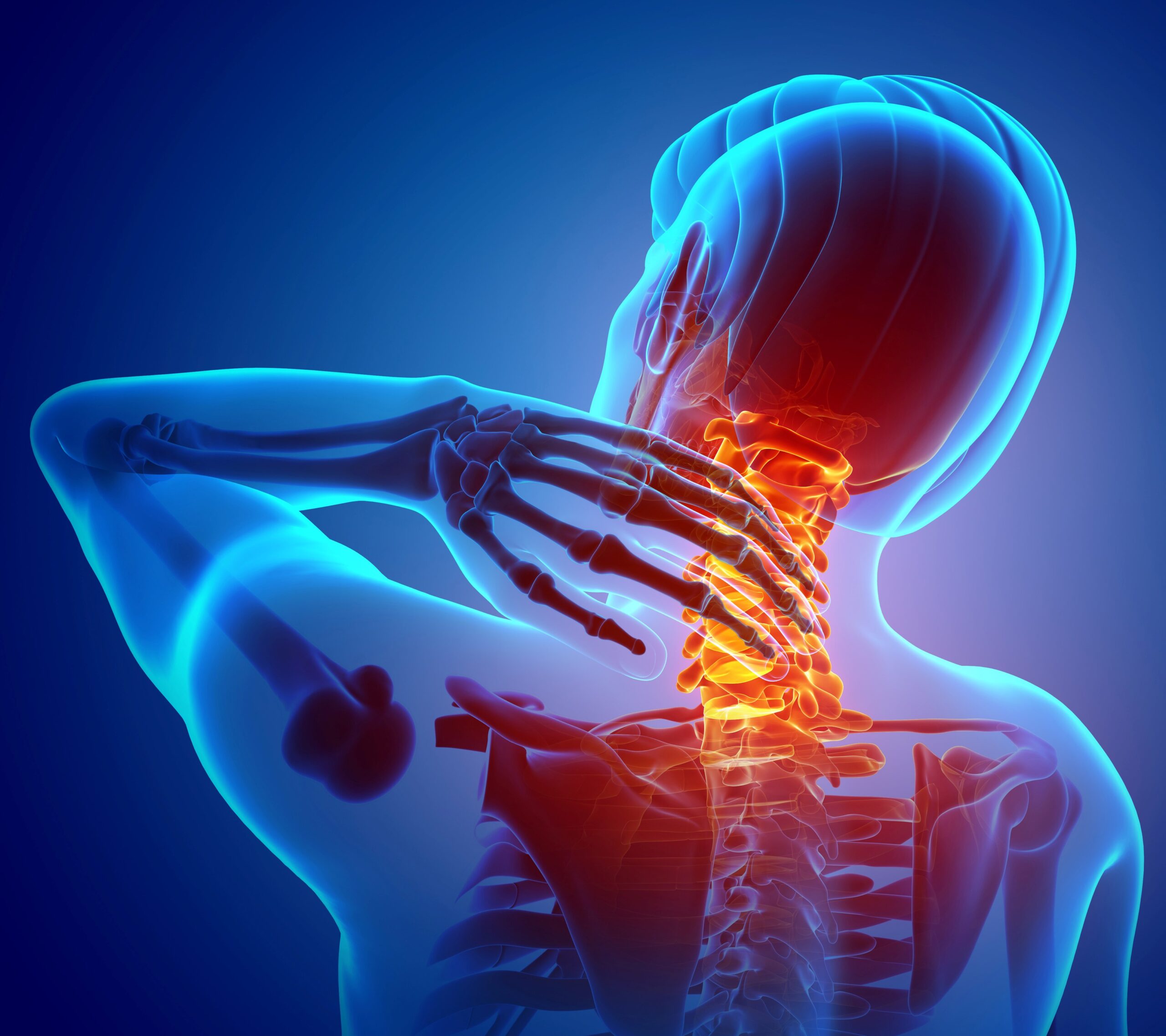
What is Acute Neck Pain?
Acute Neck Pain comes on suddenly. It is possible to sleep awkwardly and wake up with a really painful neck. This is your classic ‘Cricked’ neck. When this occurs, there is restricted head movement and you may have to hold your head to one side to alleviate the pain.
Other Acute Neck injuries can occur with poor posture such as turning your head to look in a certain position for a long time or after sitting in a draught.
With Acute Neck Pain there is a lot of muscle spasm which means it can be extremely painful. The pain may also spread to the head, shoulders or even down into the arms.
Having some medication to alleviate the pain is the first step and then your Osteopath will do a careful case history and assessment to ascertain which structures are involved and will then formulate a treatment plan to help you.
If you have had any trauma prior to the injury such as a road traffic accident, fall or blow to the head, then it is imperative that you go to A&E to ensure that you haven’t injured the spine.
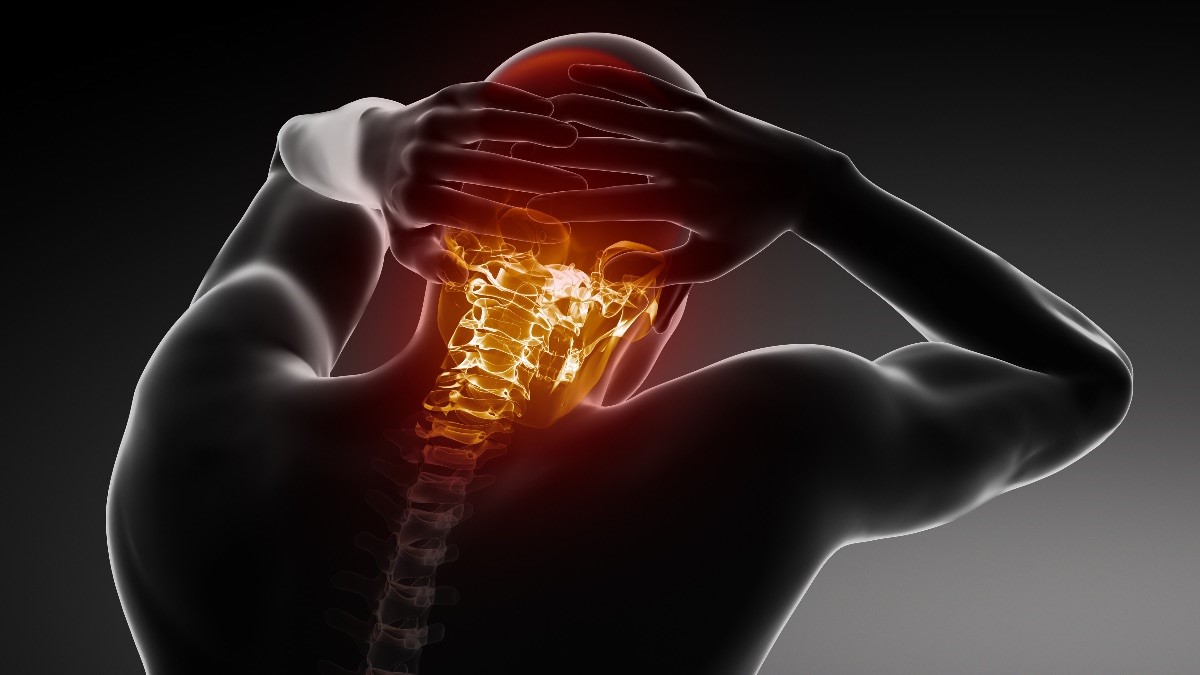
Chronic Neck problems often have an insidious onset. Chronic pain is generally described as pain that has lasted longer than 3 months.
Chronic Neck Pain can have differing characteristics – it can be dull, achey or occasionally sharp and sometimes has radiations of pain down the spine or into one or both arms. There can also be associated headaches, jaw pain, general malaise and it is common to feel unhappy/depressed.
When trying to find the cause of the pain, your Osteopath will have to take a detailed case history including your previous medical history and then get you to do a series of active and passive movements of your head and spine.
Chronic Neck Pain can be as a result of an Acute Injury such as Whiplash becoming longer term. However, it can also be a sign of degenerative changes with age such as osteoarthritis of the spine, spondylosis or cervical spine degenerative disc disease.
The good news is, once your Osteopath has made a differential diagnosis, they can help formulate an effective treatment plan and give you advice and encouragement on how to manage your problem for the long-term.
Pain management is key to recovery and your Osteopath will help advise and direct you in the correct direction for this, be it for Prescription medication or with self-help advice.
Chronic Neck Pain can be complex, so it might need a multi-faceted approach and should you need MRI scans or onward referral, your Osteopath will work closely with you throughout this journey.

The Road To Recovery Starts Here
If you are suffering from Neck Pain, please do not hesitate to get in touch. We would love to help.
You can email info@osteopathuk.co.uk or call 02089776396
Click the link for our website: www.osteopathuk.co.uk

Please do not hesitate to get in touch with us for any reason, we are here to help and welcome any feedback. Click here for more information.
As we approach our second pandemic winter, the message from healthcare experts is all about the need to find a balance between social well-being and the potential exposure to illnesses from that increased social interaction.
Staying healthy this winter is challenging and a balanced approach to lifestyle and self-awareness are key to being well.
Keep your body in shape through exercise, nutrition and have regular Osteopathic treatment to promote self-healing and prevent injury.
In this newsletter we focus on how you can eat well to promote better Winter Health.
Kind regards,

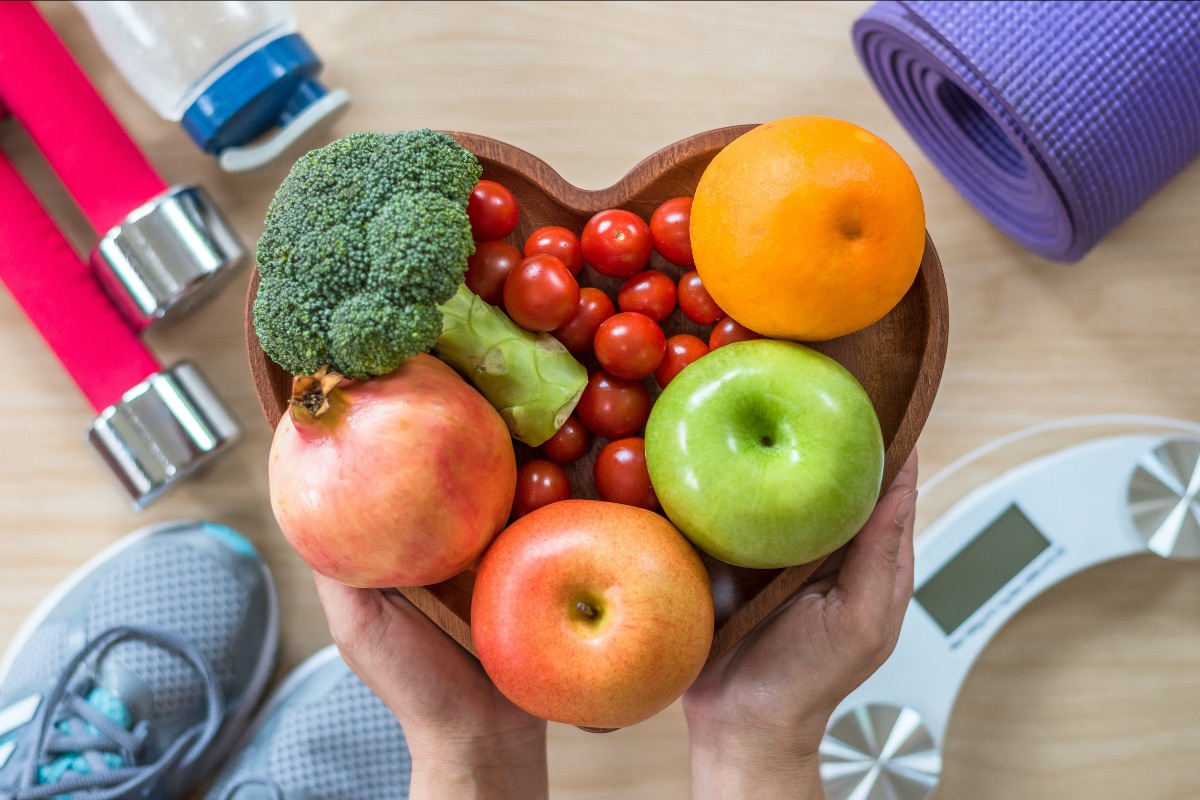
Eating well in winter is very important for our overall health. For optimum well-being we need to eat a diet that is rich in Calcium, Magnesium, Vitamins C, D and K.
Foods rich in Calcium: dairy is the obvious go-to for Calcium but if you are dairy-intolerant choose alternatives that are fortified with Calcium. Foods rich in Calcium are beans/lentils, dark green leafy vegetables such as kale and spinach. You can also add a Calcium top-up to your morning cereal by sprinkling on some sesame or poppy seeds. Eating a handful of almonds will also give you a quick Calcium boost.
Benefits of Calcium: bone health, heart health, muscle health
Foods rich in Magnesium: pumpkin seeds are a super source of Magnesium as are bananas. Again, your dark green leafy vegetables are a great way to ingest magnesium – grab some spinach and kale at your next grocery shop. Add in an avocado for a light Magnesium-based lunch. Fantastic news is that dark chocolate is a great source of Magnesium. Make sure it is 70-90% cocoa solids and enjoy a healthy treat.
Benefits of Magnesium: bone health, muscle health, anti-inflammatory benefits, nervous system health so can help with depression and migraines, gives energy and so great for fatigue
Foods rich in Vitamin C: citrus fruits are the most obvious but again Vitamin C comes in kale, broccoli and brussel sprouts. Kiwi fruit pack a super Vitamin C punch. Grab a yellow pepper when you are shopping next – it has double the vitamin C content of its green counterpart.
Benefits of Vitamin C: growth and repair of all tissues so it is vital for immune system health, helps the absorption of iron so helps with overall health and prevents anaemia, antioxidant helping memory and cognitive function
Foods rich in Vitamin D: oily fish such as mackerel, sardines or salmon can be a good source of Vitamin D. Choose fortified cereals that will help provide extra Vitamin D in your diet. Egg yolks and mushrooms can also be of benefit but mainly we need sunlight to absorb Vitamin D. During winter months in the UK it is recommended that you supplement your diet with Vitamin D. Speak with your Osteopath for advice on what your personal optimum dosage should be.
Benefits of Vitamin D: bone health, muscle health, heart health, immune system health, nervous system health. Can help with depression by regulating mood
Foods rich in Vitamin K: more kale, dark greens, spinach, broccoli and brussel sprouts. Interestingly, beef liver is a good source of Vitamin K as is chicken and pork chops. You can also get a lesser amount of Vitamin K from prunes, kiwi and avocados.
Benefits of Vitamin K: regulates blood calcium levels so very important in overall health, helps blood clotting and wound healing
If you are feeling run down, tired or generally suffering from winter blues, it may be worth supplementing your diet with additional vitamins and minerals.
Your medical history may affect which supplements are more relevant to you, so please speak with your Osteopath for the optimum balance.
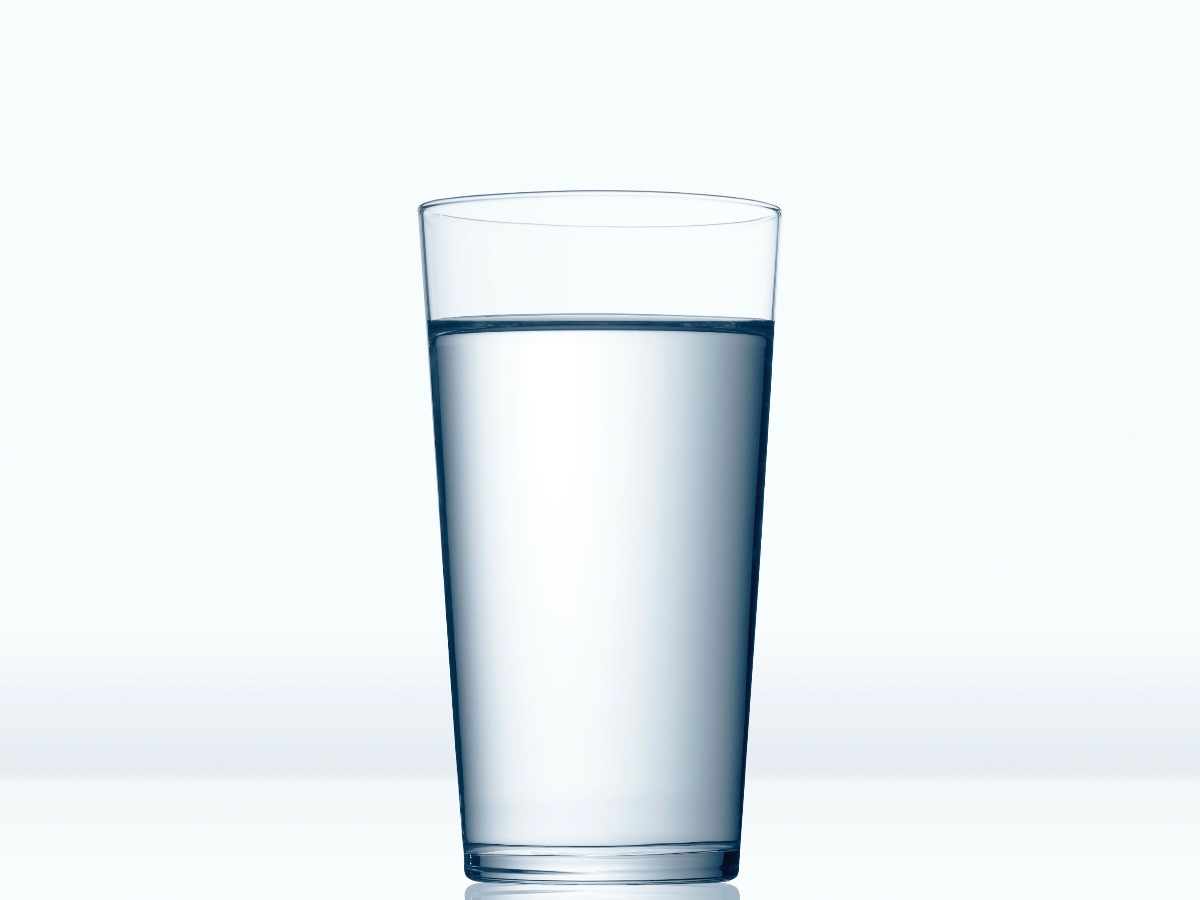
Last but by no means least, remember to keep hydrated. With cold winter weather outside and central heating inside it is easy to not feel thirsty and dehydrate easily.
Aim for room temperature or warmer drinks so that your body doesn’t expend too much energy warming them up after drinking.
Set a water/fluid intake goal each day. Ideally, that would be approximately 2 litres per day for women and 3 litres per day for men.
Choose drinks that are flavoursome so that it is easier to drink more. Try all the amazing teas that are easily available nowadays or just add a dash of lime or lemon to a cup of hot water.
It has been recommended by professionals that tea & coffee are still better than less overall fluid intake. However, where possible, do try decaffeinated versions for better hydration.

Osteopathy aims to promote self-healing & well-being and can help keep your body in good health during the winter months.
You can email info@osteopathuk.co.uk or call 02089776396
Click the link for our website: www.osteopathuk.co.uk

Please do not hesitate to get in touch with us for any reason, we are here to help and welcome any feedback. Click here for more information.
This is a great question and the answer is:
“by helping ease tensions of growth spurts at all ages, from newborn and childhood through to teenage years and the 18 year old adult”.
Osteopaths are trained to differentially diagnose the cause of any tensions or issues and devise a safe, gentle way to restore and maintain your child’s health and well-being.
Children will experience the dynamic changes of growth and development in different ways…. Some will experience and demonstrate discomfort, aches & pains or show signs of not being their normal self. Other children will seemingly sail through childhood and then suddenly in teenage years start showing signs of discomfort.
Any sign of musculoskeletal discomfort should not be dismissed. Osteopathy can help diagnose any issues and help your child on to the road to recovery. Our Osteopaths will also give lots of advice and explanation so that your child can learn the tools of self-care and this can be a wonderful building block for adulthood.
Kind regards,


With babies, intra-uterine position, labour and newborn growth spurts may cause muscular tensions. As your baby develops you may notice that your baby turns their head one way when sleeping, favouring one side, or they may experience difficulties with digestion.
Our specialist Cranial Osteopaths can use very gentle techniques to balance the body and release physical tension and treatment will encourage function and movement. Cranial Osteopathy will therefore ease tension and soothe and relax your baby’s body.
All our paediatric Cranial Osteopaths have done further post-graduate training in Cranial Osteopathy.

Child girl doing fitness exercises on gymnastic mat
School-age children are busy people! They are extremely active and yet their body is developing on every level. Hormones, skeleton and muscles are changing constantly and this can be a demanding time on a young child.
Your child may complain of muscle cramps in their legs, aches and pains, headaches or go through stages of clumsiness as they have their growth spurts. Osteopathy can differentially diagnose if there is musculoskeletal strain from growth spurts and Osteopathic treatment can restore and maintain healthy muscle growth and balance of tissue function.
If your child is sporty and very active, you might find that they occasionally complain of achey knees, ankles or feet. Osteopathy can be really useful at this time to diagnose the problem and also help your child learn to notice when a growth spurt is happening and how to manage any future problems.
This skill of self-care can be taken into adulthood and help them form a healthy approach to life.
All our Osteopaths are skilled in treating children and diagnosing the cause of any issues. They will always advise when it is appropriate to see a GP and advise on the best care for a particular problem.

Positive group of multiracial young friends having fun at public park, hugging and smiling
Teens go through a lot… massive growth spurts with associated hormone changes, stress of exams and social life development.
It is a huge time of change and it is hardly surprising that your teen may complain of back pain, headaches, postural issues and sports injuries. We see a lot of teens within our practice and it is great to help ease the musculoskeletal issues that may have a negative impact on them during this time of change.
Our Osteopaths are good communicators and will help your teen express the problem that they are experiencing. Again, differentially diagnosing the cause will enable the Osteopath to help your teenager understand their problem and work towards health, well-being and an adult approach to self-care.

Please do not hesitate to get in touch with us for any reason, we are here to help and welcome any feedback. Click here for more information.